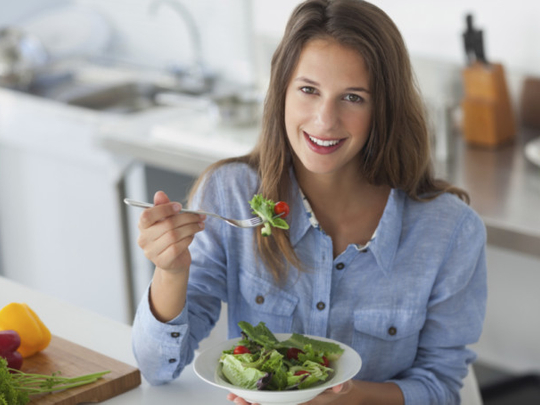
Dubai: Vegetarianism is not as simplistic as not just eating meat. And while there are many reasons to go vegetarian (animals are just too cute or you believe it’s healthier), did it ever strike you there are different ways to be one?
In fact you may already be a vegetarian, say since birth, but do you know which type you are? Are you an ovo-vegetarian or lacto-vegetarian or an ovo-lacto vegetarian or just vegan?
For starters, ovo-vegetarians are vegetarians who eat eggs but not dairy products like cheese or milk (also known as eggatarians), while lacto-vegetarians eat dairy products but not eggs. Most vegetarians likely eat both eggs and dairy, which makes them ovo-lacto-vegetarians.
And then there are the vegans, who are really strict vegetarians who do not eat dairy products, eggs or animal-derived products (like gelatin). And to round things out, there are pescatarians who eat only fish and no other type of meat.
Veg substitutes
While one may think that a plant-based diet can leave you with lower levels of certain vitamins and minerals, specifically Omega-3 fatty acids, iron and zinc as well as B-12 and vitamin C, nutritionists say it’s not hard to make up for what you’re missing by conscientiously eating certain foods. Here’s how it works out:
Omega-3s: Walnuts, flax and chia seeds are a great source of Omega-3 fatty acids and replace fish from your diet.
Iron: As non-meat iron sources contain a different form of the mineral that’s less absorbable, iron recommendations for vegetarians are actually slightly higher. You also need to eat foods that increase iron absorption (like grains, seeds, citrus and sprouted beans) so that your body can actually access the benefits. Vitamin C and other acids in fruits and veggies can help vegetarian iron absorption.
Zinc: This nutrient is important because it helps your body’s immune system fight off bacteria and viruses. Similar to iron, acidic food pairings can improve your body’s ability to absorb zinc, so consider combining zinc-rich foods like soy, whole grains, and cheese with something citrus-y.
Protein: Luckily, from nuts and seeds to leafy greens and dairy products, finding alternative protein sources is a non-issue. Nutritionists recommend incorporating a protein source into every meal if you can.
Tofu: Tofu tends to be the first place people turn to. It’s easy to find and comes in different varieties of firmness that make it the perfect sub-in for an insane amount of dishes. Tofu is soy-based, and takes on the flavour of whatever you’re cooking it with.
If you are a meat-eater and plan on crossing over, it’s important to monitor your hunger (especially at the beginning of your vegetarianism) and have plenty of snacks available that sync up with your new lifestyle. Create your own mixed nut and fruit packs before you head out for the day.
The writer is an intern at XPRESS


